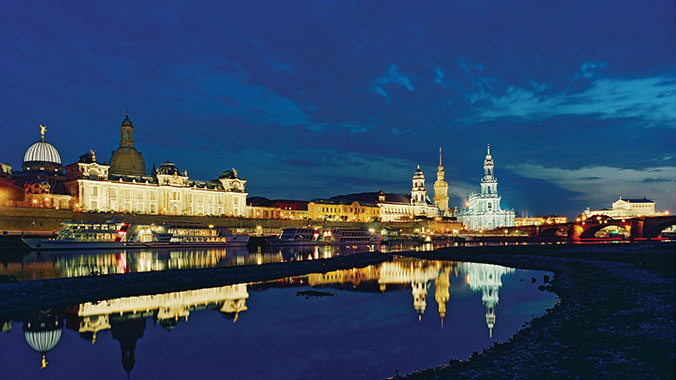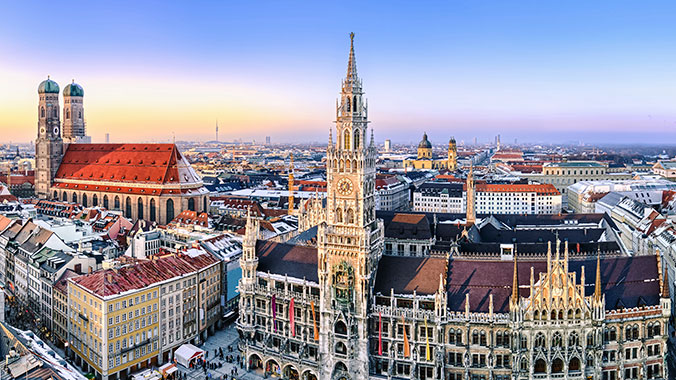Plane
If Road Scholar is arranging your air travel to and from the program, and you travel on the scheduled start and end dates, you’ll receive free round-trip transfers from the airport to the hotel.
Arrival day is on October 11, 2025
Meet the group at Maritim proArte Hotel Berlin in Berlin
Start of Trip: 3:00 p.m. hotel check-in; 4:30 p.m. Orientation in meeting room.
Getting to the site: The easiest option with a lot of luggage is to take a taxi from the airport to the hotel. It takes about 60 minutes and would cost around 70-80 Euros.
To travel from Berlin Brandenburg Airport (BER) to the Maritim proArte Hotel by public transport, the easiest option is to take the train S9 towards Spandau until Friedrichstraße Station. From there, the hotel is a 5-minute walk. For this trip you would need an ABC public transport ticket for 4.70 Euros which you can purchase at the airport ticket machines.
Getting to the site by train or bus: Yes.
Your trip ends on: Monday, October 20, 2025 in Munich at Hotel NH Collection München Bavaria
End of Trip: 10:00 a.m. after breakfast; 12:00 Noon hotel check-out.
Getting to the airport: The most convenient way to reach the airport is to take the Lufthansa Express Airport Bus which leaves Munich central station (Exit North - Arnulfstrasse) every 15 minutes and takes about 40 minutes. It will cost 12 Euro.
Alternatively, you can take trains S1 or S8 from Munich Central Station that will take you to the airport in about 50 minutes. The ticket will cost 16,30 Euro.
Alternatively, you can take a taxi which will take about 60 minutes minutes and will cost about 120 Euro.
Information if you are purchasing your own airfare: Participants who have not purchased airfare through Road Scholar are responsible for making their own transfer arrangements to the first site at the beginning of the program, as well as from the last site at the end of the program. The Information Packet Road Scholar sends in advance of the program includes details needed to make your transfer arrangements. If you wish to purchase airfare through Road Scholar, please call (800) 241-1404.
Please note: In the unlikely event Road Scholar must make changes to the program's arrival or departure details, we will notify all participants as soon as possible. Participants who have purchased Road Scholar airfare are protected against airline change fees; however, anyone who has not purchased Road Scholar airfare will be required to make their own adjustments and may incur fees imposed by the airline.


